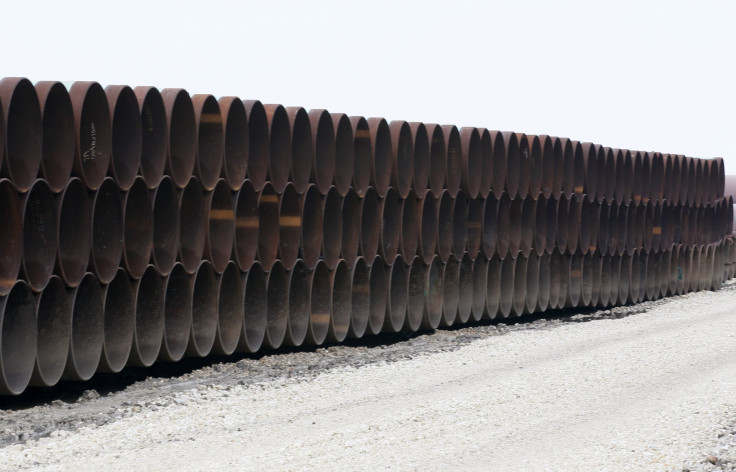Donald Trump Keystone Pipeline Plan From Energy Speech Rejected By TransCanada

Donald Trump supporters who heard the presumptive Republican presidential nominee's energy plan speech Thursday probably liked most of what they heard, but one company was not so thrilled with one of the candidate's suggested proposals.
TransCanada — the company planning to build the Keystone XL oil pipeline, should the U.S. government ever fully approve the costly project — spoke out Friday to reject Trump's idea that the U.S. government should receive a share of the profits generated from the construction of the pipeline. Trump suggested the government deserved some payment for helping get the project off the ground.
“The role of the U.S. government in such transactions is that of a regulator — ensuring various laws and regulations are followed — and granting appropriate permits,” TransCanada spokesman James Millar said Friday, according to the Hill. “We would expect to continue to follow this model, [which] has been in place for decades.”
The proposed Keystone pipeline would be an oil pipeline system in Canada and the United States that would run oil from the Western Canadian Sedimentary Basin in Alberta to refineries in Illinois and Texas.
During his speech Thursday, Trump declared the government should get a "share of the profits" from the pipeline's construction in exchange for "making it happen" — potentially invoking eminent domain to secure the land needed for the pipeline and helping the company navigate regulation hurdles.
“If you read the documents on the Keystone pipeline, the whole big section is dedicated to eminent domain. Because without eminent domain, that pipeline wouldn’t go 10 feet – you understand that,” Trump said.
While Trump and TransCanada may eventually have to get on the same page if Trump is elected president in November, the current U.S. president has been actively trying to prevent the construction of the Keystone pipeline. In November, President Barack Obama rejected the permit for Keystone, fearing the energy benefits would not outweigh the environmental cost of the project.
© Copyright IBTimes 2024. All rights reserved.






















